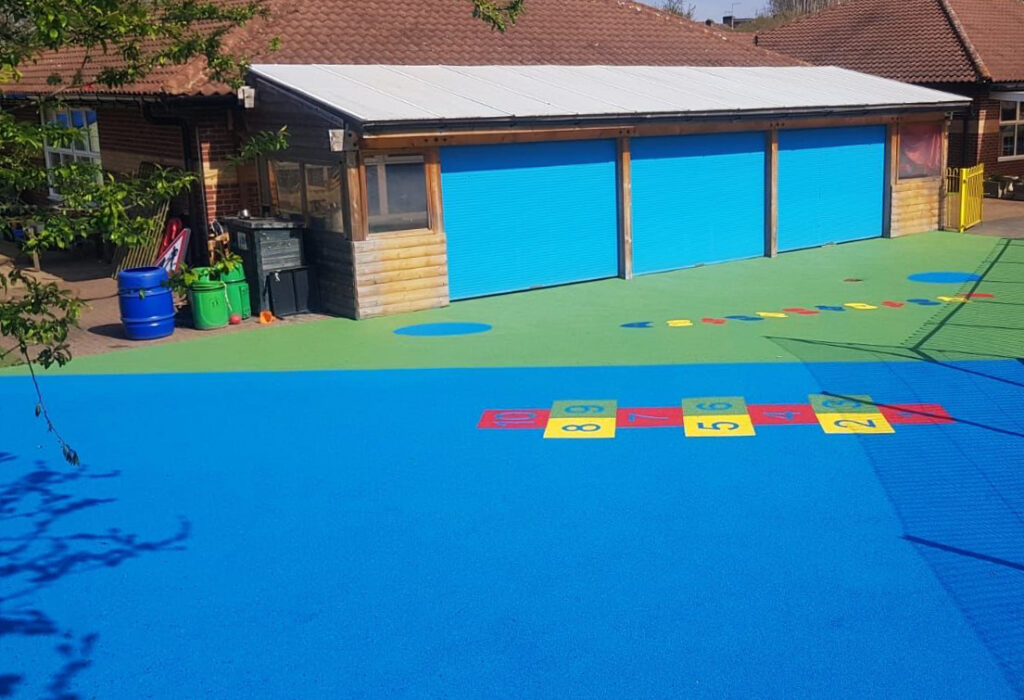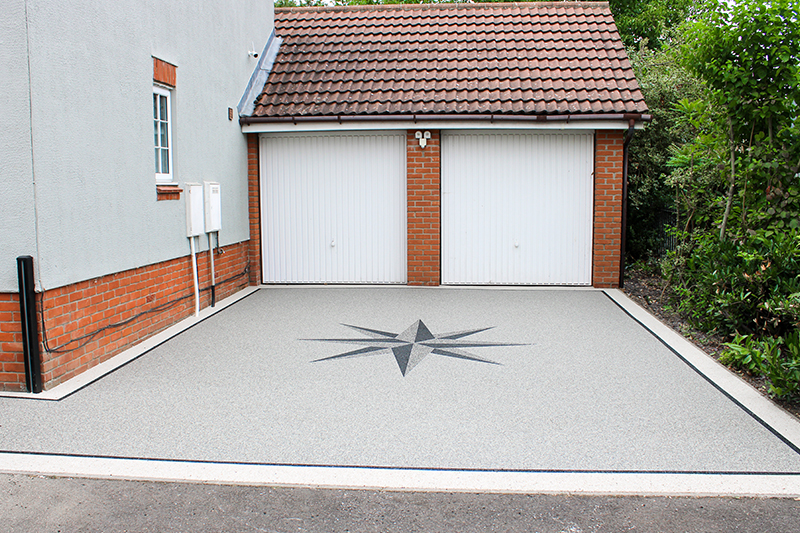How Much Does a Resin Bound Driveway Cost?
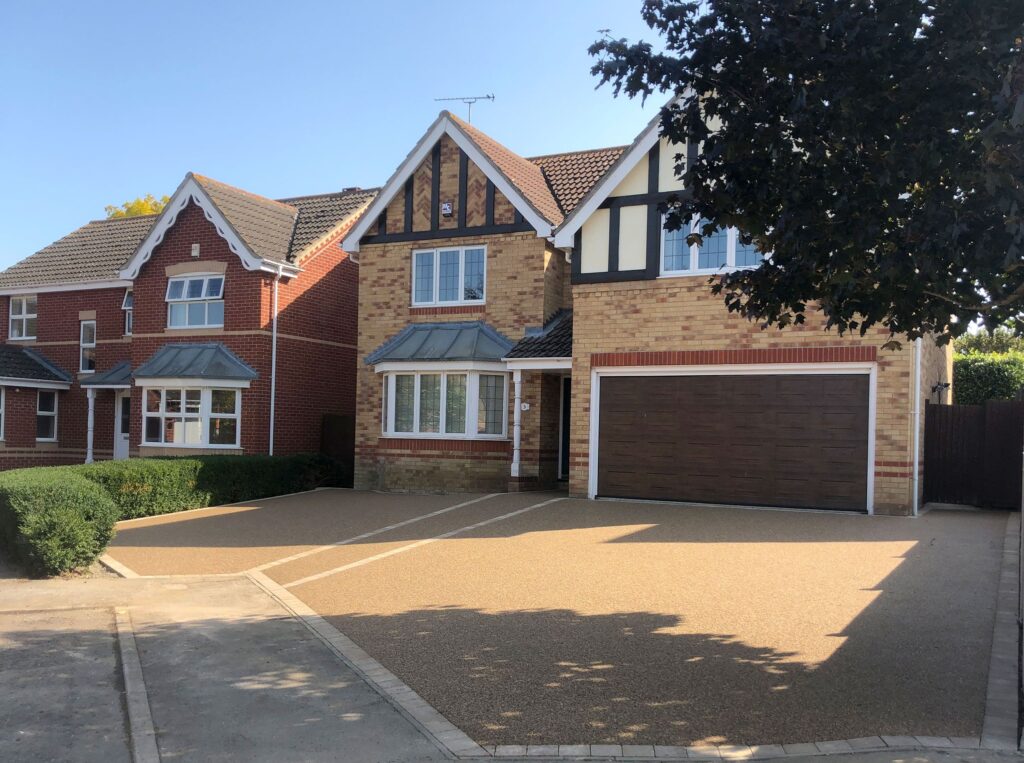
A Clear Guide to Pricing, Materials and What Affects the Cost
If you’re thinking about up upgrading your driveway, a resin bound surface offers the perfect blend of style, durability and low maintenance, but what should you expect to pay?
The truth is, resin bound driveway cost varies depending on several factors, from the size of your driveway to the type of resin used. In this guide, we’ll break down the key elements that affect pricing so you know what to look out for and how to make the most of your investment.
Cost Factors: What Determines Your Resin Driveways Price?
There’s no one-size-fits-all price. The final resin driveway cost depends on:
1. Your Current Driveway Surface
Your base condition plays a big part in the final cost.
- If your existing surface is flat, solid and made from concrete or tarmac, it may be suitable for overlay, which saves money on preparation.
- Uneven or damaged surfaces often require full excavation and a new sub-base installation.
- Drainage may also need to be installed or upgraded before resin application.
All of this affects labour time and the complexity of your resin driveway installation.
Therefore, the more work needed to prepare your surface, the more it will affect the overall resin bound driveway cost.

2. Driveway Size and Layout
Larger areas naturally need more materials and labour, so expect to pay more for big or unusually shaped driveways.
- Larger areas require more resin and aggregate, increasing costs.
- Straightforward layouts are simpler and cheaper to install.
-
Curved edges, borders or intricate shapes require more time and skill.
A recommended depth of at least 18mm is essential for driveways supporting vehicles.
So if you’re wondering how much your resin bound driveway cost per m² might be, start by measuring the area and thinking about your layout.
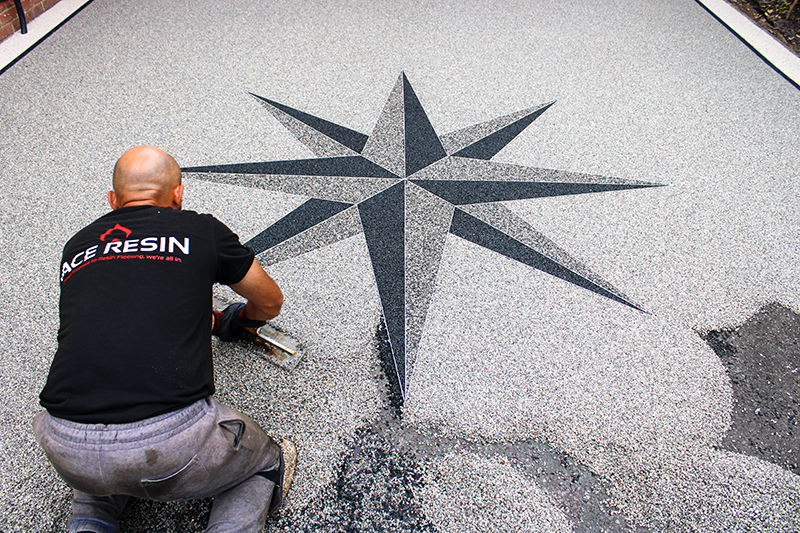
3. Aggregate Type and Resin Choice
Materials have a big impact on both cost and performance.
- Larger aggregate stones generally require less resin and can be more cost-effective.
-
Smaller stones give a smoother finish but need more resin, increasing the price.
- Choosing a UV stable resin is strongly recommended. It prevents fading and discolouration, particularly in areas exposed to sunlight, but it does cost more upfront.
- Bespoke blends or decorative finishes may also affect the price.
While budget options exist, investing in high-quality materials ensures your driveway stays looking great for longer.
4. Labour and Installation Complexity
Professional resin bound driveway installation guarantees a longer-lasting finish but does come at a cost.
- You’ll be paying for expert surface preparation, careful mixing and precision laying.
- Timing matters, resin is sensitive to moisture and temperature so installation has to be done in the right weather.
- Removing an old surface may also lead to additional disposal costs, such as skip hire.
These labour costs can vary based on the project size and your location.
While DIY may seem cheaper at first, poor installation can lead to cracks, lifting or drainage problems that end up costing more to fix.

How much does a Resin Bound Driveway Cost per M²?
The resin bound driveway cost can vary based on several factors, including site access, edging details, manhole covers, whether it’s an overlay on an existing base or a full excavation, the required resin depth and the amount of groundwork involved.
Smaller aggregates typically require more resin, which can increase costs, while premium or bespoke colours tend to be pricier than standard options.
With so many variables at play, an exact price is difficult to determine without an assessment of the site. For a tailored quote, contact our team today, our resin bound experts will provide clear pricing and professional advice.
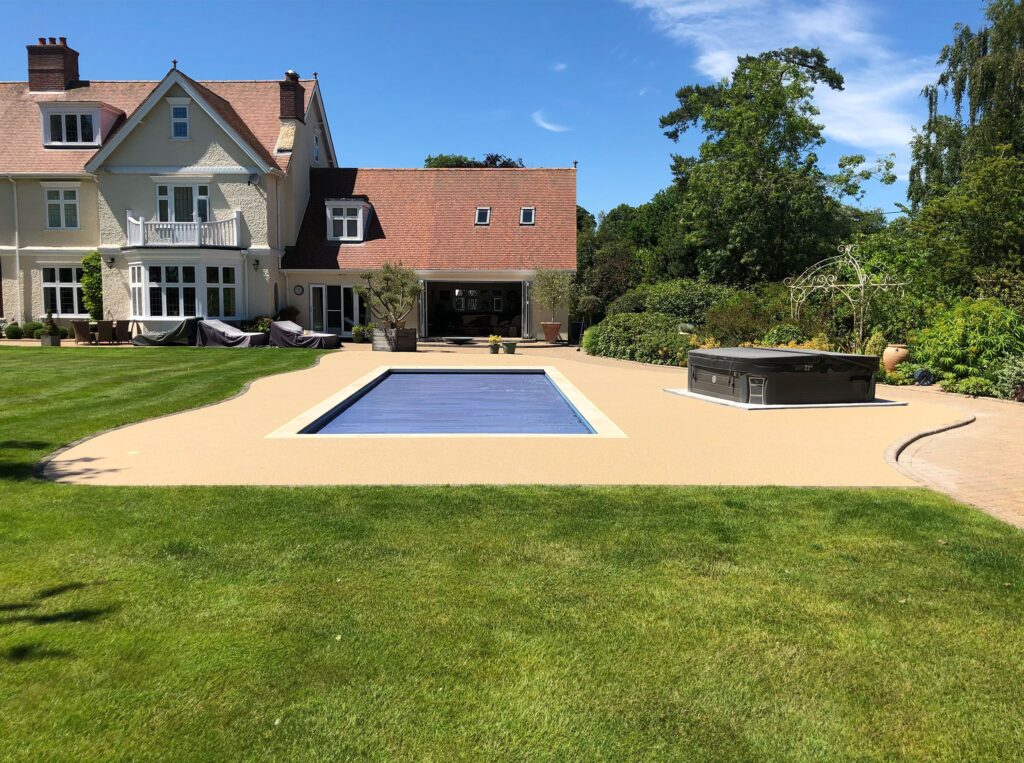
Resin Bound vs Resin Bonded: Which Is Better Value?
It’s easy to confuse the two, but they’re very different.
- Resin bound driveways are fully permeable, low-maintenance and visually seamless. They’re compliant with SUDS regulations and offer long-term durability.
- Resin bonded driveways, on the other hand, are not permeable. Stones are scattered over a resin layer, which means they can become loose and the surface water can’t get through
Because resin bonded driveways don’t manage water effectively and tend to break down faster, they may cost less upfront but more in the long run.
If you’re comparing options, investing in a resin bound driveway offers better long-term value, especially for surfaces exposed to rain and regular use.
Are Resin Driveways Worth the Investment?
Absolutely. A professionally installed resin bound surface offers:
- Long-term durability with minimal upkeep.
- Resistance to weeds, oil stains and UV damage.
- A smooth, modern finish that improves kerb appeal.
- No loose stones like gravel or the weed issues of block paving.
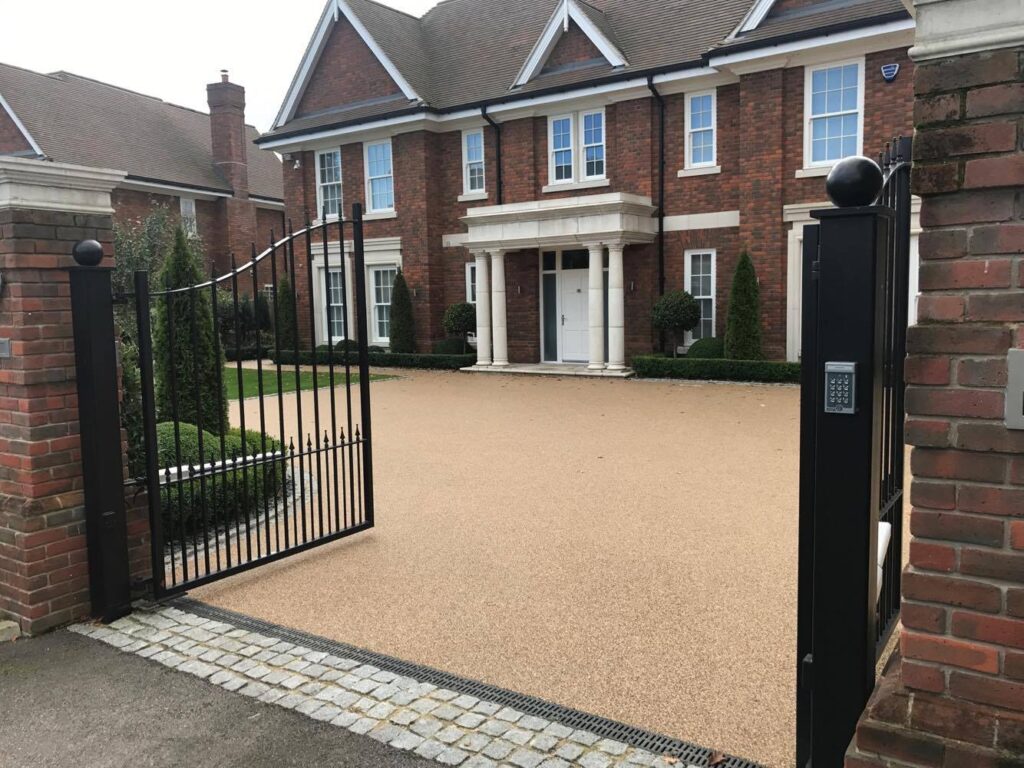
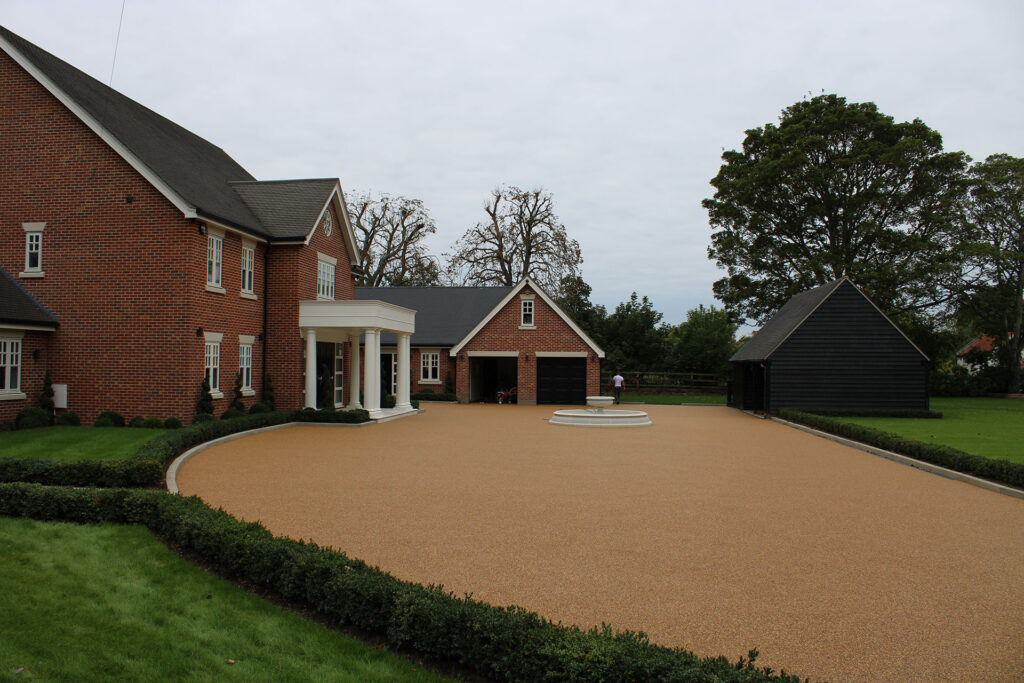
Getting a Quote for Your Driveway
Every project is different, so getting a tailored quote is essential.
A professional installer like Ace Resin will assess:
- The condition of your current driveway
- Drainage or groundwork requirements
- The size, shape, and complexity of your layout
- Material choices, including aggregate size and UV stable resin
- Access to the site, edging details and finish preferences
For a clear and detailed breakdown of your resin driveway cost, reach out to our team today.
Looking for inspiration? Our driveway gallery showcases real projects and finishes.
Understanding what can affect the cost of your driveway helps you to budget wisely and choose the right materials and installer. At Ace Resin, we specialise in delivering high-quality resin bound surfaces for everything from small front gardens to large private driveways.
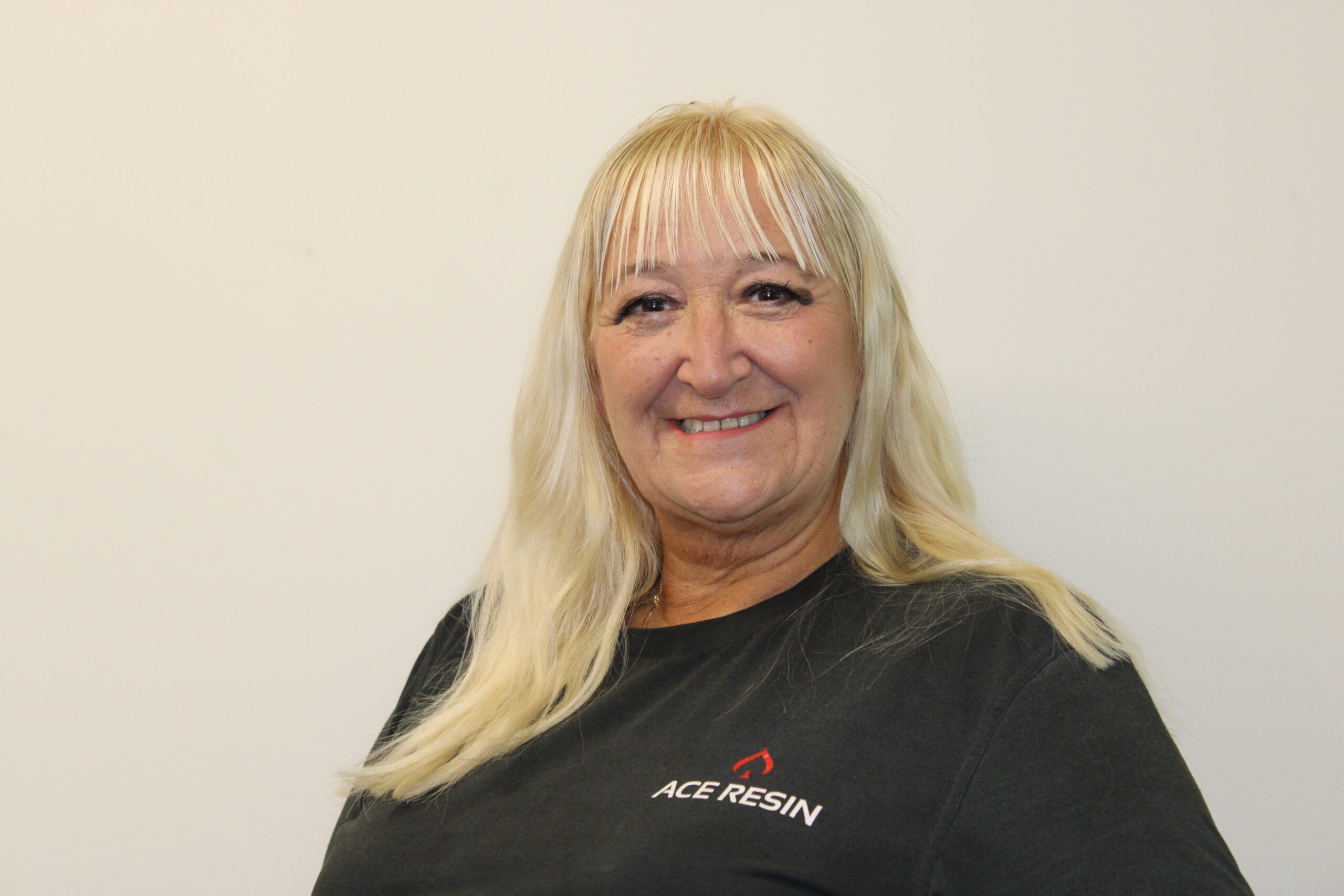
Donna Jones
HEAD OF SALES
Donna Jones, Head of Sales at Ace Resin, has 40 years of construction experience, including two decades at the forefront of resin-bound surfacing. Passionate about innovation and sustainability, she plays a key role in supporting contractors across the UK, helping them enhance their projects with premium, eco-friendly solutions and expert training.


























